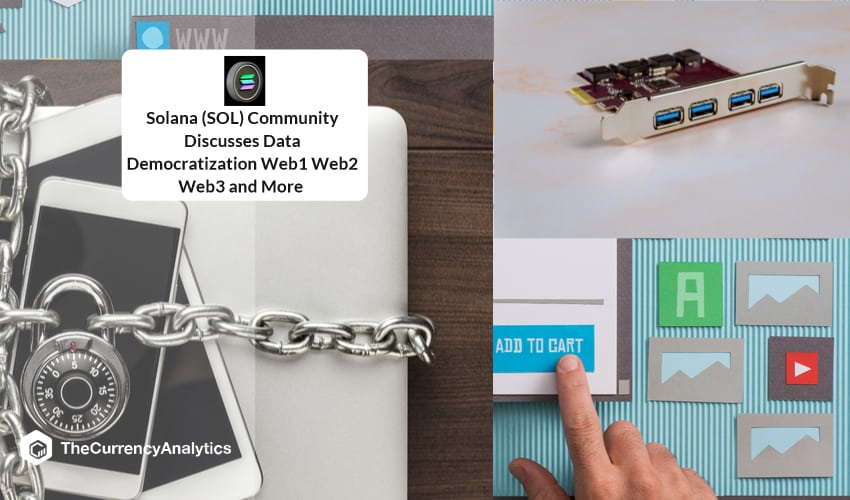
Someone who tried to simplify Web 3 expressed, Linux is a Personal Computer without the Microsoft tax. Web3 is The Web without the Google/FB tax. The goal is to make it possible to build a web ecosystem that explicitly excludes google/fb/etc from monetization. If you can do that, it will become a seed for innovation.
Clarification from Arthur B: Since the question is trending I’ll venture my own rough and imperfect definition of web3. Web1: content distributed to users Web2: content produced by users and distributed to users Web3: content produced by users and distributed to users on user controlled platforms.
Solana (SOL) Community response: You don’t actually need to replace the old web2, just outpace it. What’s the barrier to entry for Google in web3?
And Solana (SOL) is “tax” free? You’re doing this out of the goodness of your heart? All the buckets of VC money dumped on you, they too are altruistic? There is always a price, and you will certainly levy yours.
While Crypto twitter is always talking about communities, in reality each person is waiting for the perfect moment to dump on the rest.
This is great to hear, but until gas fees aren’t an issue there is much work to do.
I wouldn’t say it would exclude them, but it will democratize the data so everyone has access. How to monetize that would become a new “problem.”
For clarity, Web 3.0, Identity Management and Open Source is expected to radically change the future of the web.
The discovery of the Web 1.0 provided new levels of interactivity for static web pages. The most powerful online network was the ability for anyone to be able to share the URL to anyone who had an internet connection. Followed by it, there were developments like search, e-mail and e-commerce. And, also scams and failures. With time privileged access to the business services and products was made possible by user names and passwords.
With Web 2.0, e-commerce boomed. Social networks mushroomed. Internet usage became an everywhere thing. Several aspects of the web evolved with payments, privacy, security and eventually the consequential concern was about privacy and identity management – there were unique usernames and passwords for every website. The major trade-offs lies in that user data is getting consolidated and getting used for stuff that not all agree.
With Web 3.0, there are ways to access a website without ever having to create an account? You only need one ID to float from site to site, app to app, across the internet. Users own their data or conversely, everyone owns everyone’s data and that the data gets verified by anyone and most importantly the user.
Get the latest Crypto & Blockchain News in your inbox.